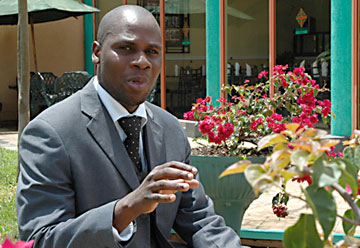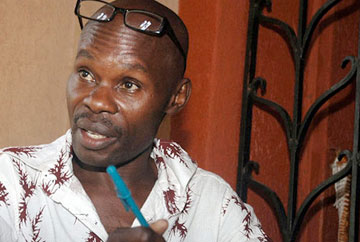BY NOREEN FAGAN – Like a growing number of countries in Africa, Malawi does not have a great track record with queer rights.
In 2009, Steven Monjeza and Tiwonge Chimbalanga made
international news when they became the first same-sex couple to seek marriage
in Malawi. Authorities caught wind of the engagement and promptly arrested the
couple.

They were convicted of “unnatural offences and indecent
practices between males” and sentenced to 14 years in prison. After
international protests, the two were released in 2010. Soon after their release
Monjeza bailed out of the relationship, saying that he wanted a normal life and
not one where “I would be watched by everyone, booed and teased.”
Chimbalanga remains in Malawi, uncertain of his future and
living under a homophobic government.
The latest development is that two non-governmental organizations that support queer rights, the Human Rights
Consultative Committee and the Centre for the Development of People (CEDEP), have been
blamed for the withdrawal of foreign aid to Malawi by donor countries.
For CEDEP, the latest attack is just another one to add to a growing list.
Last year the CEDEP offices were raided and pornographic
films were supposedly discovered. According to the police spokesperson, the
discovery led to the police launching a “hunt for prominent gays” — a phrase
that made international headlines.

Gift Trapence, the director of CEDEP, says the frequent
attacks have hindered CEDEP’s HIV prevention efforts. Trapence
says that gay people have been driven underground and cannot access
testing because they’re afraid of the police.
The Malawi government’s “outing” of organizations and people
who support queer rights echoes the sentiment in Uganda and Cameroon.
David Kato, a Ugandan gay rights activist was killed early
this year. He was a leader in challenging the proposed government
anti-homosexuality bill, which called for the death sentence for some
homosexual acts.

News of his murder reverberated around the world and was even brought up in the House of Commons. Bill Siksay, retiring NDP MP, brought
up the question of how Canada would respond to the murder.
Unfortunately for Siksay, the government’s
response was tepid.
“It would be nice to see them do something tangible about it. I’d like
to see them bring in the high commissioner and say they’re concerned.
I’d like to see the prime minister call the president again. I’d like to
see our diplomats do something tangible, as American and other
diplomats have done in Kampala,” said Siskay.
But months have passed and nothing has happened. Discrimination and violence still continue in countries like Uganda and Malawai. Gays and lesbians are forced into hiding as governments become increasingly homophobic with each passing day.
 Why you can trust Xtra
Why you can trust Xtra


